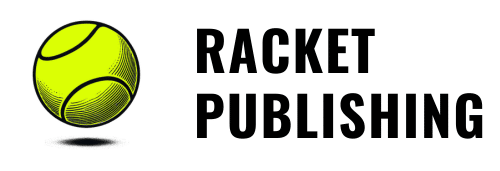I am a big fan of metaphors. Used correctly, they illustrate points in ways that make your audience your point. In this post, I’ll use one of my faves analogies to illustrate the process of planning, researching, writing, publishing, and promoting a book.
Hotels
Say that you decide to build a new hotel. Yours is a greenfield project, not a makeover or fixer-upper. You wouldn’t just head to the local Home Depot, buy supplies, and roll up to some ostensibly available land.
It behooves you to first do a little prior research on the competitive landscape. Are there other hotels in the area? How are they doing? What do they charge? Is the crime rate high? What are the laws around renting out homes via Airbnb?
No red flags yet? Good. Next, you’d want to purchase a lot, deal with any local zoning laws, and the like. What restrictions exist? Which ones are likely to come? I suspect that you’d hire an attorney to ensure that you’ve dotted your i’s and crossed your t’s.
Got enough money for the project? If not, who’s backing you? A bank? Investors? Family?
Finances aside, even if you knew everything there is to know about building a multi-story hotel, you’re going to need assistance. Have you identified the people and companies that will help you? Are they available when you want to start? Did you do your due diligence? Can you afford them?
 Apart from the external materials like bricks, concrete, windows, and wood, you’ll want to purchase furniture. I’m talking about beds, dressers, nightstands, and the like. Your future guests will surefly want to unpack their suitcases. What about in-room appliances and elevators? Oh, and don’t forget the toilets, sinks, showers, televisions, and Internet connections. Make sure the latter don’t suck.
Apart from the external materials like bricks, concrete, windows, and wood, you’ll want to purchase furniture. I’m talking about beds, dressers, nightstands, and the like. Your future guests will surefly want to unpack their suitcases. What about in-room appliances and elevators? Oh, and don’t forget the toilets, sinks, showers, televisions, and Internet connections. Make sure the latter don’t suck.
Parallel Challenges
I’m sure that I’ve vastly simplified the process of building a new hotel and omitted many steps. After all, I’ve never gone down this road before.
I have, however, written and ghostwritten a bunch of books via every conceivable type of publishing method over the last fifteen years. I know full well what each step of that process entails—and the pitfalls to avoid. I know where the bodies are buried. No, I can’t guarantee a bestseller, but neither can any reputable ghostwriter or publisher.
Proper project management is a necessary—but not sufficient—condition for success.
One would never build a hotel strictly from memory—even if you routinely work with the same folks. You’d need some type project management tool and a proper plan. Maybe it’s Procore. Your software application of choice would easily provide status updates and alert everyone as needed. You wouldn’t need to be in front of a proper computer to use it. (It’s 2025, after all.) And you’d use it to easily identify problems before they occur. While we’re at it, few graphs wouldn’t hurt. (If it sounds like I’m going somewhere with this train of thought, trust your instincts.)
Ideally, everyone involved religiously uses this tool, but that fact alone doesn’t guarantee that you’ll stick the landing. Odds are that someone will still miss something over the course of the project. It happens. A single overlooked detailcan cause delays and cost overruns—maybe even derail the project altogether. If a key employee departs the team, a good bit of knowledge will also disappear. Maybe that fact, file, or message still exists, but it’s trapped in an angry ex-foreman’s inbox.
Necessary but Not Sufficient
 Now let’s say that all goes according to plan. Congrats. Raise a glass.
Now let’s say that all goes according to plan. Congrats. Raise a glass.
The fact that you assiduously planned your hotel’s construction doesn’t mean that it will become the area’s it spot. Failing to plan appropriately, though, all but guarantees a bevy of problems. I can see the Yelp reviews and memes on social media. No closets? WTF? #fail
In this way, think of planning and proper project management as necessary—but not sufficient—conditions for a successful outcome. If you didn’t market or advertise your new hotel, its opening will likely underwhelm you.
The 46 Non-Writing Hats Skilled Non-Fiction Ghostwriters Wear
What You Need to Know
The same principle holds true with books. Planning, research, organization, and communication matter. That’s I built RacketHub and launched it ten months ago.
On your future hotel or book, go ahead and use email or Excel if you want. Don’t be surprised if find out when it’s too late that you were building on a creaky foundation from the get-go.
I used Google Gemini to generate the sketches in this post.



0 Comments